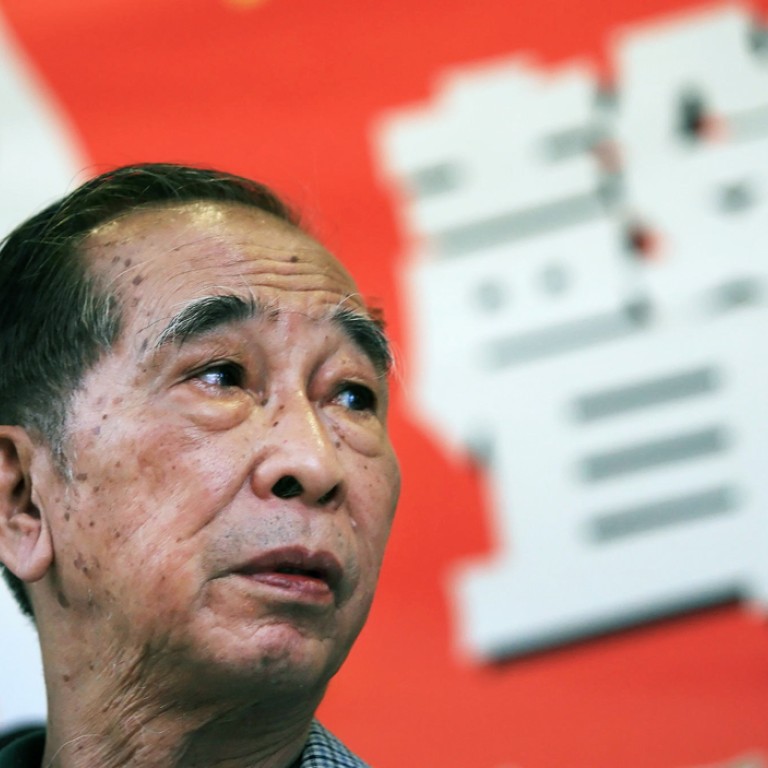
Pan-democrats need strong leader like the late Szeto Wah, says Beijing loyalist
Tai Hay-lap bemoans lack of strong democrat leaders willing to make concessions thatwould break the deadlock on electoral reform
A moderate Beijing loyalist has lamented the lack of strong leaders, willing to make tough decisions, within the pan-democratic camp since the death of democracy stalwart Szeto Wah.
Tai Hay-lap, a core member of Legislative Council president Jasper Tsang Yok-sing's so-called reform banquet initiative, said the late Szeto would have accepted any "one man, one vote" proposal for political reform.
He said the stalled electoral reform process made him miss "Uncle Wah", who died in January 2011, just months after his Democratic Party voted for the government's reform proposal after securing the new district council functional seats elected by citywide ballot. "If Szeto Wah were still alive he would have secured 'one man, one vote' first, regardless of the rest," Tai said.
The two political camps are deadlocked over how to nominate candidates for chief executive in 2017, when the city chooses its leader by universal suffrage for the first time. The pan-democrats want voters to have the right to put forward candidates, while officials and Beijing loyalists insist this is unconstitutional.
Tai, Tsang and Policy Research Institute chief executive Andrew Fung Ho-keung have been arranging banquets and meetings with pan-democrats in an attempt to draw both sides to the negotiating table.
"There was no 'taking a wrong step' for Uncle Wah … He always told me a story, adapted from ," Tai recalled, referring to the 1961 film. "It was about how six men destroyed a seemingly impregnable fortress by bombing a small hole."
Tai said Szeto used the example to show that direct clashes were not constructive. "When the first step is made, the political environment will be more favourable [for further progress]. Conversation is of the utmost importance … in achieving a consensus," he said.
"The pro-government side has already taken the initiative, so pan-democrats should give some response. But they are worse than children - without direction, strategy and substance."
Tai said an "internal evil" among pan-democrats - the 2016 Legco elections - hindered them from moving forward.
"No one wants to concede and support the government proposal as they are worried about an intra-camp fight in 2016, which could cost them seats in Legco," Tai said.
He said he hoped a remark by National People's Congress chairman Zhang Dejiang that universal suffrage must be in line with the Basic Law could be a starting point for negotiation.
"The pan-democrats now have grounds to argue they can amend the electoral plan again after 2017," he said.
